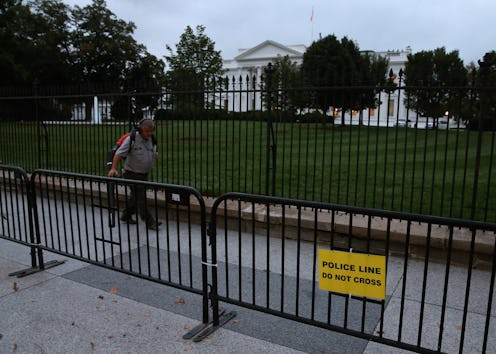
As April 28, the deadline for the federal government to pass a fiscal year 2017 spending bill, rapidly approaches, many are speculating as to whether there will be a government shutdown under President Trump. Many budget experts say that there is about a 50/50 chance that the government will shut down at the end of this week and largely agree that the determining factor for whether or not it does is Trump himself.
The federal government, including both houses of Congress and Trump, must pass a fiscal year 2017 spending bill by midnight on April 28 or the federal government will shut down. This would furlough thousands of federal employees, close federal agencies, and cut many government services throughout its duration.
The last time a government shut down occurred was in 2013 under the Obama administration, after Congressional divisiveness over the Affordable Care Act resulted in Congress refusing to pass a spending bill by its given deadline. The 2013 shutdown lasted 16 days, put around 800,000 federal employees out of work, and cost the country $24 billion, among other negative consequences.
This time around, there are several reasons why a shutdown may occur; however, these reasons primarily center on Trump rather than Congress. According to The New York Times, Congressional Republicans seem to agree that a shutdown should not occur, as they fear they will be blamed for it since their party currently controls the House, Senate, and the presidency. However, the Times reports that Republicans in Congress nonetheless seem unsure of a foolproof way to prevent a shutdown due to the unpredictable nature of Trump.
Multiple news outlets report that while it is quite likely that Congress will pass a spending bill (or at least pass a stop-gap bill that gives them another week to pass a spending bill), this bill will likely contain few, if any of the Trump administration's policy priorities, such as funding for a border wall between the United States and Mexico.
Experts are particularly concerned that, if presented with a spending bill without funding for a border wall (a prospect that is highly likely) or other policy initiatives that he considers a top priority, Trump would veto the spending bill, which would then cause a government shutdown. Thus, it seems fairly likely that the decision about whether or not the federal government will shut down or continue to operate next week will likely fall squarely on Trump's shoulders.
Experts place the chance of a shutdown at 50/50 because they are unsure as to what Trump considers a "win." According to Forbes, if the president believes that averting a shutdown and avoiding further tarnishing his party's image constitutes a win, then he will likely sign a spending bill, even if it does not contain his policy priorities. However, if Trump perceives a win as making a statement if his policy priorities, particularly "the wall," are not included in the spending bill, then he will likely veto the bill and send the government into a shutdown, as well as attempt to blame Congress for failing to produce a passable bill.
Only time will shortly tell whether or not the United States will be headed into its second federal government shut down in less than five years. At this point, seemingly anything can happen, so be sure to monitor the situation closely as the week progresses.